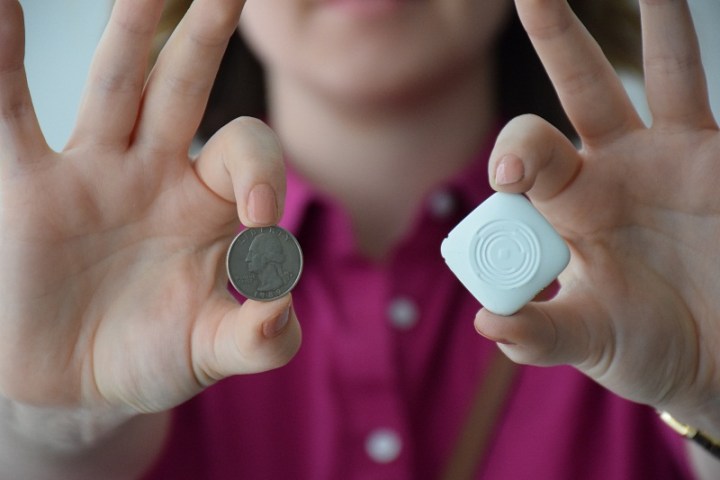
Ping has an idea, and it’s arguably one of those “why hasn’t this been done before?” moments. Instead of just Bluetooth, Ping’s tag also connects to GPS and cellular — meaning whether you’re 30 feet or 3,000 miles away, you’ll know exactly where you left that forgotten item.
“Ping aims to solve a problem that no other locating device has been able to — always-on, global tracking,” founder Josh Lippiner says. The device is premiering on Indiegogo for pre-order at $99 (and was fully funded in less than five hours, a Ping spokesperson told us), but will retail for $129 when it goes on sale later this year.
The tag is actually smaller than the Tile by about a tenth of an inch on either side, though is about four times the cost. Ping hopes the addition of GPS and cellular connectivity makes it worth the extra expense for consumers, as those capabilities may open a whole new range of potential uses.
For example, a Ping tag could be placed on a bike, or a car for that matter, to work as a LoJack of sorts, or placed on a dog collar to track your dog in the event it runs away. The position of the tag is reported to an app and shown on a map, which updates continuously to aid in retrieval.
No data plan is needed as the Ping is built to work over AT&T’s network, however after the first year a $3 monthly charge per tag is required to access the tag’s location data. Battery life lasts is three to five months, Ping says, although the tag can be recharged unlike most current Bluetooth trackers.
Other features include check-in and SOS buttons, to either notify someone of a location or request immediate assistance, respectively, and privacy features which allow for the tracker to be shut off from continuous tracking yet still have the check-in and SOS functionality enabled.
Indiegogo pre-orders are expected to ship in July of this year. Ping has made no announcements yet on eventual retail availability.

